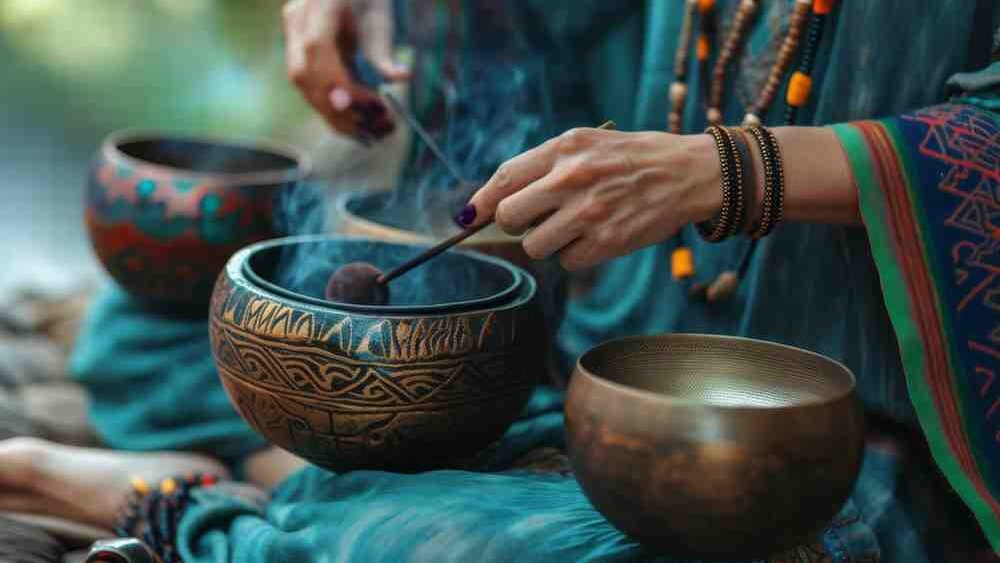The Ethiopian coffee ceremony is more than just making coffee—it’s a cultural event that brings people together. Coffee is deeply embedded in Ethiopia’s heritage and social life. In fact, Ethiopia is considered the birthplace of coffee, and the ceremony reflects the country’s respect for this heritage. But what makes this ceremony unique, and how is it practiced?
What Makes the Ethiopian Coffee Ceremony Special?
The Ethiopian coffee ceremony is unique due to its deliberate pace and attention to detail. Unlike quick coffee brewing methods, this ceremony encourages participants to slow down, engage with each step, and appreciate the final result. Here’s what sets it apart:
- Time and Patience: The ceremony takes about two hours from start to finish, providing plenty of time for conversation and connection.
- Sensory Experience: Each stage involves sights, sounds, and smells that contribute to the ceremony’s ambiance. The smell of roasting beans, the rhythmic grinding, and the aroma of brewing coffee all enhance the experience.
- Social Ritual: The ceremony creates a space for people to bond. It often involves storytelling, catching up on local news, or discussing family matters.
The Process: What Happens During an Ethiopian Coffee Ceremony?
The Ethiopian coffee ceremony involves several stages, each rich with meaning. The host, typically a woman, leads the ceremony with care and precision. Let’s look at each step:
Step 1: Roasting the Coffee Beans
- The host begins by washing green coffee beans to remove impurities.
- She then roasts the beans in a flat iron pan over hot coals or a stove.
- Constant stirring ensures an even roast, and the beans darken as they release a rich, smoky aroma.
As the aroma fills the air, the host fans the smoke towards the guests, inviting them to share in the sensory experience. This act symbolizes the unity and warmth shared during the gathering.
Step 2: Grinding the Beans
After roasting, the beans cool briefly before the host grinds them using a traditional mortar and pestle, known as a mukecha. This part of the ceremony requires physical effort and rhythm:
- The rhythmic pounding of the beans creates a steady sound, adding to the ceremony’s atmosphere.
- Grinding the beans by hand keeps the process authentic, ensuring the coffee grounds maintain their rich flavors.
- The coarse texture of the ground coffee prepares it for slow brewing, allowing the flavors to fully develop.
Step 3: Brewing the Coffee
Once ground, the coffee goes into a special clay pot called a jebena. The host adds water, places the jebena over the heat, and allows the coffee to brew slowly. This step requires attention and care:
- Monitoring the Temperature: The host adjusts the heat to prevent the coffee from boiling over. This careful control helps to extract the full-bodied flavors of the beans.
- Blending Aromas: As the coffee brews, its rich scent mingles with the incense burning nearby, creating a calming environment that invites reflection.
Step 4: Pouring and Serving
When the coffee is ready, the host pours it into small, handleless cups called sini. She lifts the jebena high above the cups, creating a smooth, thin stream of coffee. This method enhances the coffee’s flavor and presentation. The coffee is served in three rounds:
- Abol: The first round is the strongest, offering a bold and robust flavor.
- Tona: The second round has a milder taste, as the grounds are reused.
- Baraka: The third round, called “blessing,” is the lightest and signifies the deepening of relationships among the guests.

What to Eat with an Ethiopian Coffee Ceremony?
An Ethiopian coffee ceremony usually includes traditional snacks. These snacks complement the coffee’s strong, rich flavors and add to the social aspect of the gathering.
Popular Snacks for the Coffee Ceremony
- Popcorn: A light, crunchy option that pairs well with the smooth coffee.
- Kolo: Roasted barley or chickpeas provide a nutty, earthy flavor that enhances the coffee experience.
- Dabo (Ethiopian Bread): Slightly sweet, soft bread that balances the coffee’s bitterness.
- Ambasha: Spiced bread, often reserved for special occasions, adds warmth and sweetness.
Why These Snacks Matter
These snacks do more than satisfy hunger; they symbolize the host’s generosity and desire to create a welcoming environment. Sharing food during the ceremony helps to create a sense of unity and encourages guests to linger, enjoy, and engage in meaningful conversations.
The Role of Incense: Why Is It Used in the Ceremony?
Creating a Sacred Space
Burning incense, such as frankincense, during the coffee ceremony transforms the environment. The aromatic smoke fills the room, creating a serene and welcoming atmosphere that encourages guests to relax and engage with the moment. It symbolizes the purification of the space, setting the stage for communal activities.
Connecting to Tradition
The use of incense also ties the coffee ceremony to Ethiopia’s spiritual and cultural heritage. It reflects the country’s deep respect for traditions that have been passed down through generations. The host’s careful incorporation of incense enhances the sensory experience, making each sip of coffee more profound.
Enhancing the Experience
The combined aromas of coffee and incense create a unique sensory experience. As guests breathe in these rich scents, they become more immersed in the ceremony. This atmosphere invites participants to slow down, savor the flavors, and appreciate the time spent together.
How the Coffee Ceremony Builds Community Bonds
A Gathering Space for Connection
The Ethiopian coffee ceremony creates a space for people to gather, fostering a sense of togetherness that strengthens relationships. Here’s how it impacts community life:
- Encouraging Social Interaction: Neighbors, friends, and family members frequently gather for a coffee ceremony, knowing that a warm welcome and a fresh cup of coffee await. The ceremony invites participants to pause their daily routines and focus on the company of those around them.
- Promoting Dialogue and Understanding: During the ceremony, guests engage in conversations that range from daily events to deeper topics, such as family matters or community issues. The slow pace of the ceremony allows for meaningful discussions, promoting mutual understanding and respect.
- Strengthening Community Ties: By bringing people together regularly, the coffee ceremony helps maintain strong social bonds. It offers a platform where individuals can express support for one another, celebrate joys, and provide comfort during challenges.
The Host’s Role: A Symbol of Respect
The host of the Ethiopian coffee ceremony plays a pivotal role in expressing hospitality and care. Through the effort put into preparing and serving the coffee, the host shows their respect for the guests. Here’s what makes the host’s role so significant:
- Dedication to Preparation: The host takes the time to roast the beans, grind them by hand, and brew the coffee, paying attention to each detail. This process reflects their appreciation for the guests and their desire to create a memorable experience.
- Welcoming Environment: The host’s warmth and attentiveness help create an atmosphere where guests feel valued and welcome. By offering multiple rounds of coffee, they encourage participants to linger, engage in conversation, and enjoy the moment.

Preserving Heritage Through the Ethiopian Coffee Ceremony
A Celebration of Origins
Ethiopians take pride in their role as the birthplace of coffee, a fact that the coffee ceremony continually honors. The ceremony acts as a living connection to the country’s coffee-growing regions and traditions. Here’s how the ceremony celebrates Ethiopia’s coffee heritage:
- Acknowledging Coffee’s Roots: The Ethiopian coffee ceremony serves as a reminder of the country’s rich agricultural history. It highlights the work of farmers in regions like Kaffa, Sidamo, and Yirgacheffe, where coffee has been cultivated for centuries. Guests often discuss the quality of the beans and their origins, fostering a deeper appreciation for the diverse flavors Ethiopian coffee offers.
- Symbolizing Cultural Identity: The ceremony embodies a part of Ethiopian identity. By continuing this practice, Ethiopians express pride in their cultural heritage and pass down these traditions to younger generations. The coffee ceremony stands as a symbol of national pride and the enduring importance of cultural roots.
Passing Down Rituals and Values
The Ethiopian coffee ceremony is not only a celebration of coffee but also a way to pass down rituals and values. Families use the ceremony to teach younger members about respect, patience, and the art of hospitality. Here’s how this knowledge transfer happens:
- Teaching the Next Generation: Elders often guide children through the steps of the ceremony, from roasting the beans to pouring the coffee. This hands-on learning ensures that the younger generation understands the importance of each stage.
- Instilling Patience and Care: The slow pace of the ceremony teaches participants to value patience and attentiveness. As children observe the careful preparation, they learn that creating something worthwhile takes time and effort.
- Maintaining Continuity: By sharing these practices, families ensure that the Ethiopian coffee ceremony remains a vibrant part of their culture. This continuity connects past and present, allowing future generations to cherish the traditions that shaped their ancestors’ lives.
Why Popcorn Is Served with Coffee: Understanding the Tradition
Popcorn, known as fendisha in Ethiopia, often accompanies the coffee ceremony. It may seem like a simple snack, but its presence holds both practical and cultural significance. Here’s why popcorn remains a popular choice during these gatherings:

Complementing the Coffee’s Rich Flavors
- Balancing Textures: Popcorn’s light, airy crunch contrasts with the rich, full-bodied taste of Ethiopian coffee. This balance makes each sip and bite more satisfying, creating a well-rounded experience for the palate.
- Simple Yet Satisfying: The straightforward nature of popcorn allows the coffee’s complex flavors to remain the focus of the ceremony. Unlike other snacks that might compete with the coffee’s taste, popcorn offers a subtle accompaniment.
Symbol of Warmth and Generosity
Popcorn serves as more than just a snack during the coffee ceremony. It symbolizes the host’s desire to create a welcoming atmosphere. Here’s what it represents:
- Creating a Comforting Environment: By offering popcorn, the host ensures that guests feel comfortable and cared for. The act of sharing food reflects a desire to nourish not only the body but also the spirit.
- Encouraging Interaction: Sharing a bowl of popcorn invites guests to interact more freely, reinforcing the communal nature of the coffee ceremony. It creates an opportunity for guests to bond over a shared experience, deepening their connection.
Exploring the Spiritual Meaning of the Ethiopian Coffee Ceremony
Reflection and Mindfulness in Every Step
The Ethiopian coffee ceremony encourages participants to slow down and focus on the present. This mindfulness turns the act of drinking coffee into a meditative practice. Here’s how the ceremony fosters reflection:
- A Deliberate Process: Each step, from roasting the beans to serving the coffee, requires attention and care. As guests watch the host’s movements, they become more aware of the effort and time that go into creating something special.
- Engaging the Senses: The ceremony engages all five senses—guests see the coffee beans darken, hear the rhythmic grinding, smell the fragrant smoke, taste the rich brew, and feel the warmth of the cups in their hands. This sensory immersion helps participants remain fully present.
Connecting to the Spiritual Realm
For many Ethiopians, the coffee ceremony holds spiritual significance. It connects them to ancient beliefs and practices, turning the gathering into a sacred event. Here’s how spirituality blends with the ceremony:
- Burning Incense as a Spiritual Act: The incense burned during the ceremony, usually frankincense, represents purification and invites positive energy. The smoke rises, carrying with it a sense of peace and calm that enhances the gathering.
- Symbolic Three Rounds: The three rounds of coffee—abol, tona, and baraka—carry symbolic meanings. The first round signifies strength and new beginnings, the second reflects stability, and the third round brings blessings and gratitude. This progression mirrors the spiritual journey of deepening understanding and connection.
Tips for Hosting an Ethiopian Coffee Ceremony at Home
Hosting an Ethiopian coffee ceremony at home allows you to experience this beautiful tradition firsthand. To recreate the authentic atmosphere, it’s important to follow certain practices. Here are some tips for a successful ceremony:
| Tip | Explanation |
|---|---|
| Use Freshly Roasted Beans | Roast green beans yourself to ensure the freshest aroma and flavor. |
| Select Traditional Equipment | A jebena and a clay roasting pan provide the best results for brewing. |
| Roast Beans Slowly | Slow roasting allows the beans to develop their full range of flavors. |
| Incorporate Incense | Burning incense like frankincense enhances the ceremony’s atmosphere, creating a calming environment. |
| Serve in Small, Handleless Cups | Using sini cups helps maintain the ceremonial feel and encourages guests to savor each sip. |
| Offer Traditional Snacks | Serve popcorn, kolo, or dabo to create a complete and authentic experience. |
| Take Time to Engage with Guests | Allow time for conversation and connection; the ceremony is about more than just coffee. |

